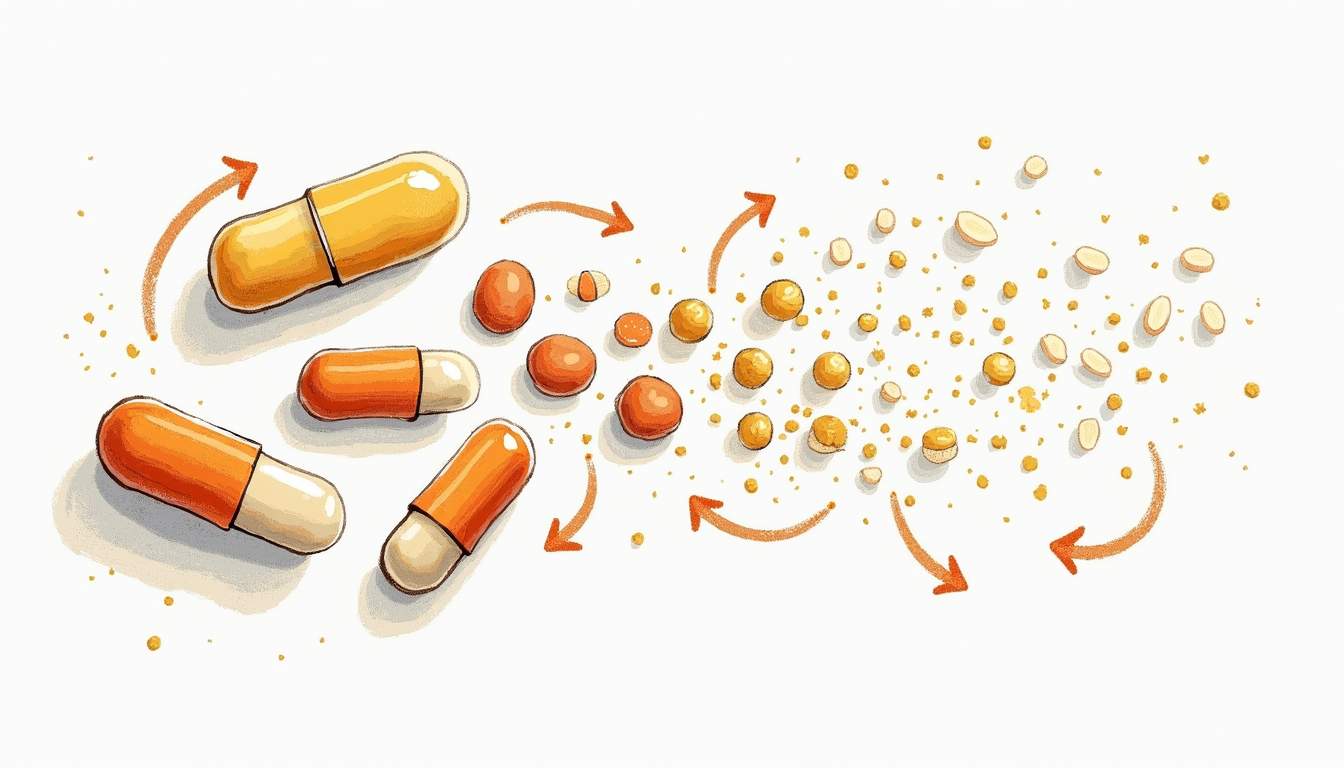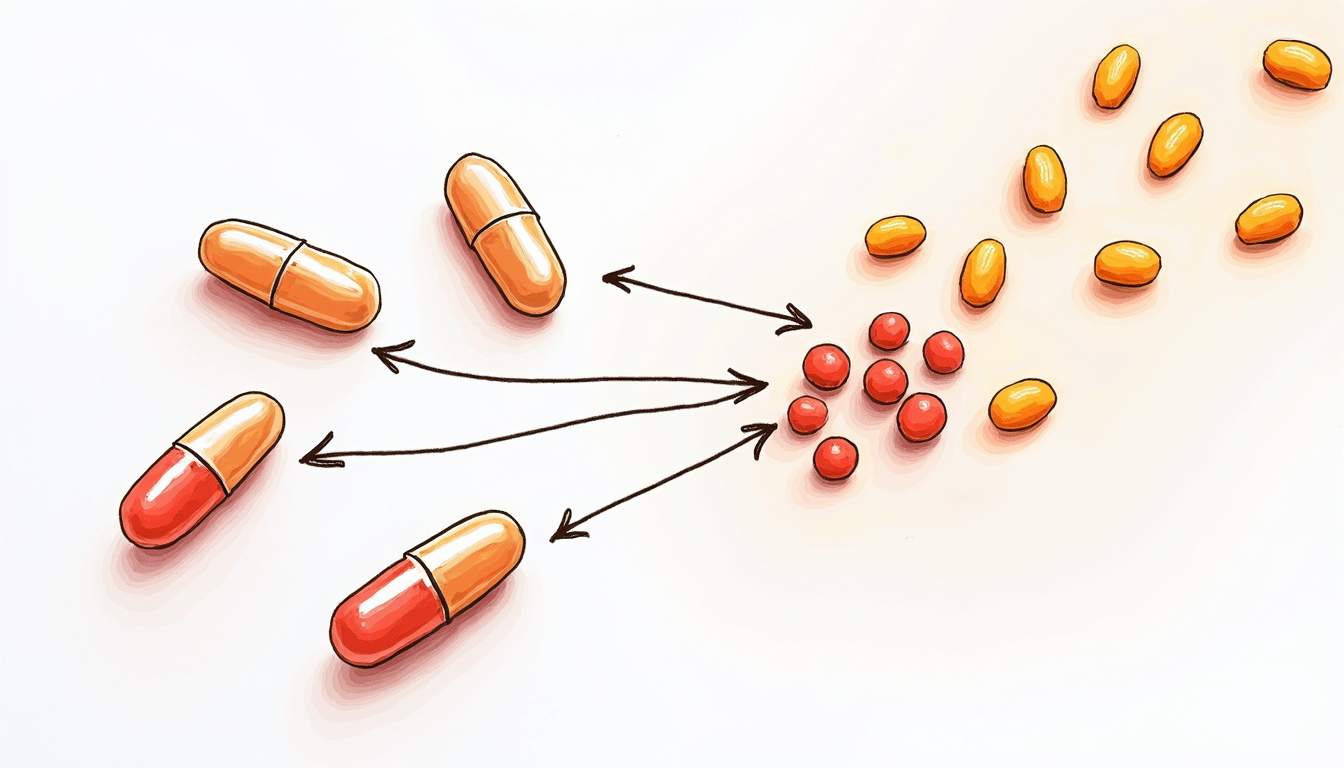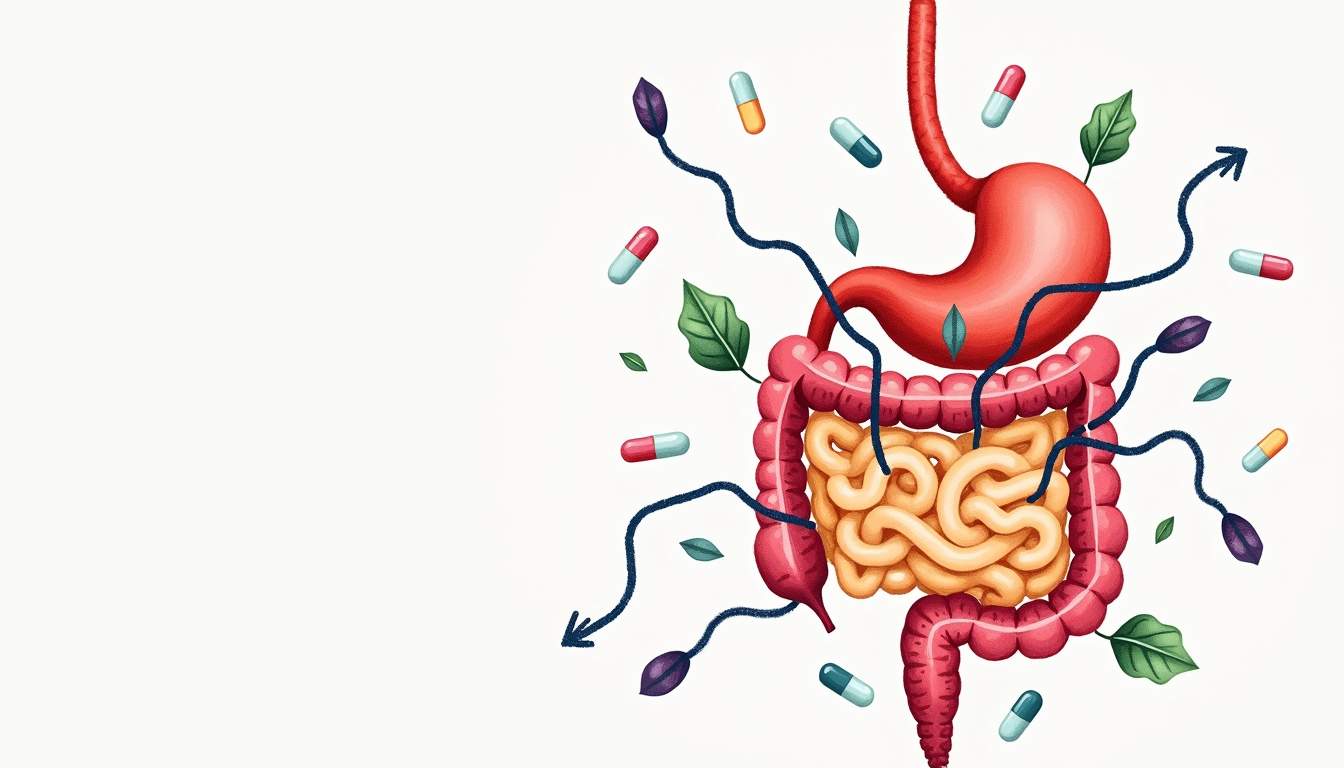Bioavailability is a crucial concept in the world of dietary supplements, especially when it comes to managing symptoms of premenstrual syndrome (PMS). Understanding how bioavailability affects the efficacy of PMS supplements can empower individuals to make informed choices about their health. This article delves into the intricacies of bioavailability, key nutrients that play a role in PMS relief, and practical strategies to maximise the effectiveness of these supplements.
Understanding Bioavailability in Supplements
What Is Bioavailability and Why It Matters
Bioavailability refers to the proportion of a nutrient or supplement that enters the bloodstream when it is introduced into the body and is made available for use or storage. This concept is critical because not all nutrients are absorbed equally; factors such as the form of the nutrient, the presence of other substances, and individual physiological conditions can significantly influence how much of a supplement the body can utilize.
For a deeper understanding of this concept, you can refer to this scientific paper on supplement bioavailability.
For PMS supplements, understanding bioavailability is essential. Even if a supplement contains a high concentration of beneficial nutrients, low bioavailability can render it ineffective. Therefore, consumers must consider not just the ingredients but also how well their bodies can absorb and utilize these compounds. For example, certain formulations may include liposomal delivery systems, which encapsulate nutrients in lipid layers to enhance absorption rates, making them more effective than traditional forms.
Factors That Affect Nutrient Absorption in the Body
Several factors can influence the bioavailability of nutrients in supplements. These include the chemical form of the nutrient, the presence of other nutrients or compounds that may enhance or inhibit absorption, and individual health conditions. For instance, certain vitamins and minerals work synergistically, meaning that one nutrient can enhance the absorption of another. Conversely, some substances, like phytates found in grains, can inhibit absorption.
Additionally, the digestive system's health plays a significant role in nutrient absorption. Conditions such as irritable bowel syndrome or celiac disease can hinder the body's ability to absorb nutrients effectively. Age, gut microbiota composition, and even lifestyle choices such as diet and hydration levels can also impact bioavailability. For instance, a diet rich in fiber can promote a healthy gut microbiome, which in turn can enhance the absorption of certain nutrients. Furthermore, the timing of supplement intake in relation to meals can also affect absorption; some nutrients are better absorbed on an empty stomach, while others may require the presence of dietary fats for optimal uptake.
Key Nutrients for PMS Relief and Their Bioavailable Forms
Magnesium, Vitamin B6, and Calcium: Optimal Forms for Absorption
Among the various nutrients that can alleviate PMS symptoms, magnesium, vitamin B6, and calcium are particularly noteworthy. Magnesium is known to help reduce bloating, mood swings, and irritability. The most bioavailable forms of magnesium include magnesium citrate and magnesium glycinate, which are more easily absorbed than other forms such as magnesium oxide. Additionally, magnesium plays a crucial role in regulating hormones and may help mitigate the physical discomfort associated with PMS, such as cramps and tension. This mineral can be found in various dietary sources, including leafy greens, nuts, seeds, and whole grains, making it accessible for those looking to enhance their intake through food.

Vitamin B6 plays a vital role in neurotransmitter function and can help alleviate mood-related symptoms of PMS. The pyridoxal-5-phosphate form of vitamin B6 is considered the most bioavailable and effective for supplementation. This vitamin not only aids in the production of serotonin and dopamine, which are essential for mood stabilization, but it also supports the body’s overall energy metabolism. Foods rich in vitamin B6, such as bananas, chickpeas, and salmon, can be beneficial additions to a diet aimed at reducing PMS symptoms. Calcium, essential for muscle function and mood regulation, is best absorbed in its citrate form, which is more soluble and easier for the body to utilize compared to calcium carbonate. Inadequate calcium levels can exacerbate PMS symptoms, making it important to ensure sufficient intake through both diet and supplementation.
Herbal Ingredients: Comparing Extract Potency and Delivery Methods
Herbal supplements can also provide relief from PMS symptoms, with ingredients like chasteberry and evening primrose oil being popular choices. However, the effectiveness of these herbs often hinges on their extraction methods and the bioactive compounds they contain. Standardized extracts ensure a consistent concentration of active ingredients, which can enhance bioavailability. For instance, chasteberry, also known as Vitex agnus-castus, has been shown to influence hormonal balance by acting on the pituitary gland, potentially reducing the severity of PMS symptoms. Evening primrose oil, rich in gamma-linolenic acid (GLA), is thought to help reduce breast tenderness and mood swings associated with PMS.
Delivery methods, such as capsules, tinctures, or teas, can also affect how well these herbal supplements are absorbed. For example, liquid extracts may offer quicker absorption compared to solid forms. Moreover, the timing of consumption can play a role; taking these supplements consistently throughout the menstrual cycle may yield better results. Understanding these nuances can help individuals select the most effective herbal supplements for PMS relief. Additionally, combining herbal remedies with lifestyle changes, such as regular exercise and stress management techniques, can further enhance their effectiveness and promote overall well-being during the menstrual cycle.
Maximizing Supplement Effectiveness for PMS Symptom Relief
Timing and Combining Supplements for Enhanced Bioavailability
To maximize the effectiveness of PMS supplements, timing and combination strategies can be beneficial. Taking supplements at specific times in relation to meals can enhance absorption. For instance, fat-soluble vitamins like vitamin D and E are better absorbed when taken with a meal containing healthy fats. This means that incorporating foods such as avocados, nuts, or olive oil into your meals can not only make your dishes more flavorful but also ensure that your body is reaping the full benefits of these essential vitamins.

Combining supplements can also improve bioavailability. For example, pairing magnesium with vitamin B6 can enhance the overall effectiveness of both nutrients, as they work synergistically in the body. Magnesium is known for its muscle-relaxing properties, which can help alleviate cramps, while vitamin B6 plays a role in mood regulation. However, it is essential to avoid combinations that may inhibit absorption, such as high doses of calcium and magnesium taken simultaneously. Understanding these interactions can empower individuals to make informed choices about their supplement intake, leading to more effective symptom management.
Lifestyle Factors That Impact Supplement Absorption and Efficacy
Beyond the supplements themselves, lifestyle factors play a significant role in nutrient absorption and overall health. A balanced diet rich in whole foods, adequate hydration, regular exercise, and sufficient sleep can all contribute to better nutrient utilization. Stress management is another crucial factor, as chronic stress can impair digestion and nutrient absorption. Techniques such as mindfulness, yoga, or even simple breathing exercises can help mitigate stress levels, thereby enhancing your body’s ability to absorb and utilize the nutrients from supplements effectively.
Moreover, certain medications can interact with supplements, affecting their bioavailability. For instance, some antacids may inhibit the absorption of specific vitamins and minerals. It is advisable for individuals to consult with healthcare professionals before starting any new supplement regimen, especially if they are on medication or have underlying health conditions. Additionally, factors such as age, gender, and metabolic rate can also influence how well your body absorbs and utilizes these nutrients. Understanding these nuances can help tailor a supplement strategy that is not only effective but also personalized to individual needs.
Incorporating a holistic approach that combines dietary choices, lifestyle modifications, and informed supplement use can create a comprehensive strategy for managing PMS symptoms. By paying attention to the intricate interplay of these elements, individuals can foster a healthier body and mind, paving the way for a more balanced life during challenging times.

Share:
How AI-Driven Personalised PMS Supplements Are Changing Women's Health by 2025
Why Organic Supplements Are Better for PMS Relief